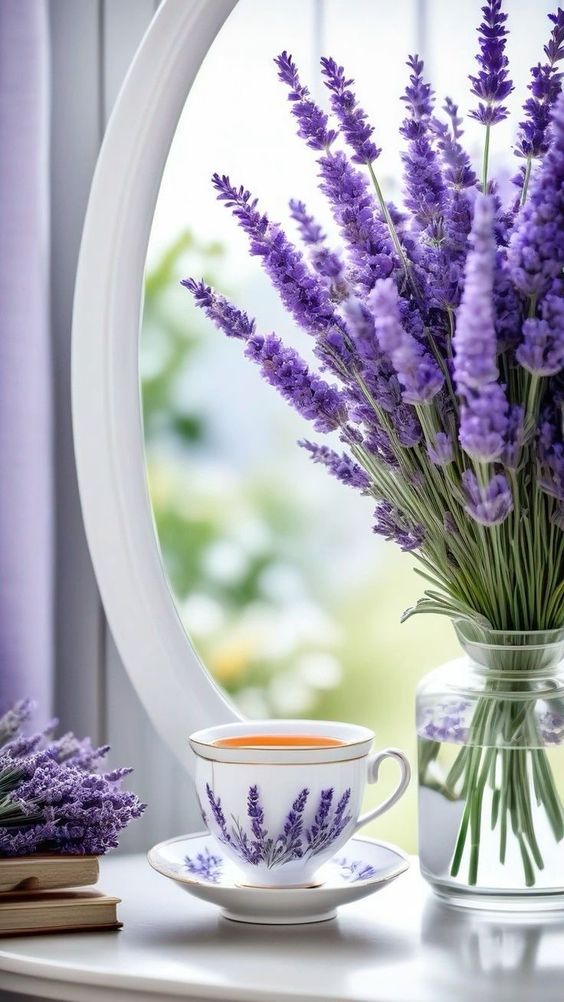Fresh flowers have long been admired for their beauty and fragrance, but their uses extend far beyond mere decoration, gifting to others to express your love and affections or used for weddings and other occasions.
Historically, various cultures have harnessed the medicinal properties of flowers, integrating them into treatments and remedies. In modern times, the therapeutic potential of flowers is recognized in various branches of medicine and holistic health practices.
Here, we explore ten medical uses of fresh flowers, highlighting their applications and benefits.
Lavender
Chamomile
Calendula
Echinacea
Rose
Hibiscus
Jasmine
Passionflower
Elderflower
Dandelion
1. Lavender (Lavandula angustifolia)
Use: Stress Relief and Sleep Aid
Explanation: Lavender is renowned for its calming properties. The fresh flowers are often used in aromatherapy to alleviate stress, anxiety, and insomnia. The scent of lavender helps to reduce cortisol levels, promoting relaxation and improving sleep quality. Essential oils extracted from fresh lavender flowers are also used in diffusers, bath products, and topical applications.
2. Chamomile (Matricaria chamomilla)
Use: Anti-inflammatory and Digestive Aid
Explanation: Chamomile flowers have anti-inflammatory, antispasmodic, and carminative properties. Fresh chamomile flowers are used to make teas and infusions that soothe digestive issues like indigestion, gas, and colic. Chamomile’s anti-inflammatory properties also make it useful for treating skin irritations and inflammation when applied topically.
3. Calendula (Calendula officinalis)
Use: Wound Healing and Skin Care
Explanation: Calendula, also known as marigold, is valued for its antiseptic and healing properties. Fresh calendula flowers are used in creams, ointments, and infusions to promote wound healing and treat skin conditions such as eczema, dermatitis, and rashes. The flowers contain compounds that stimulate tissue regeneration and reduce inflammation.
4. Echinacea (Echinacea purpurea)
Use: Immune System Booster
Explanation: Echinacea flowers are well-known for their immune-boosting effects. Fresh echinacea is used to prepare teas and tinctures that help prevent and treat colds, flu, and other infections. The flower contains active compounds that enhance the activity of white blood cells, aiding the body’s natural defense mechanisms.
5. Rose (Rosa spp.)
Use: Antidepressant and Skin Toner
Explanation: Roses are not only beautiful but also beneficial for mental and skin health. Fresh rose petals are used in aromatherapy to reduce depression and anxiety. The scent of roses can stimulate the release of endorphins, promoting feelings of happiness and relaxation. Additionally, rose water, made from fresh petals, is a popular skin toner that hydrates and soothes the skin.
6. Hibiscus (Hibiscus sabdariffa)
Use: Cardiovascular Health
Explanation: Hibiscus flowers are rich in antioxidants and have been traditionally used to support cardiovascular health. Fresh hibiscus flowers are brewed into teas that can help lower blood pressure and cholesterol levels. The anthocyanins in hibiscus flowers are known to improve heart health and reduce the risk of cardiovascular diseases.
7. Jasmine (Jasminum spp.)
Use: Antidepressant and Antiseptic
Explanation: Jasmine flowers are celebrated for their mood-lifting and antiseptic properties. Fresh jasmine is used in aromatherapy to alleviate symptoms of depression and anxiety. The flowers’ scent can stimulate the release of serotonin, improving mood. Jasmine extracts are also used topically to treat minor wounds and skin infections due to their antiseptic properties.
8. Passionflower (Passiflora incarnata)
Use: Anxiety and Sleep Disorders
Explanation: Passionflower is used for its sedative and anxiolytic effects. Fresh passionflower is prepared as teas or tinctures to treat anxiety, nervousness, and insomnia. The flower contains flavonoids and alkaloids that interact with the brain’s neurotransmitters to induce relaxation and improve sleep quality.
9. Elderflower (Sambucus nigra)
Use: Respiratory Health
Explanation: Elderflowers have been traditionally used to treat respiratory ailments. Fresh elderflowers are made into teas and syrups that help relieve symptoms of colds, flu, sinusitis, and bronchitis. The flowers contain compounds that reduce inflammation and congestion in the respiratory tract, making breathing easier.
10. Dandelion (Taraxacum officinale)
Use: Liver Health and Detoxification
Explanation: Dandelion flowers are known for their detoxifying properties, particularly for liver health. Fresh dandelion flowers are used in teas and salads to promote liver function and aid in the body’s detoxification processes. The flowers contain antioxidants and vitamins that support liver health and improve digestion.
Fresh flowers offer a myriad of health benefits, ranging from stress relief to boosting the immune system. By incorporating these flowers into daily routines through teas, infusions, topical applications, and aromatherapy, one can harness their natural healing properties.
As our understanding of these benefits grows, the integration of fresh flowers in medical and holistic practices continues to flourish.

